
Afghanistan Economic Outlook
May 2024
Afghanistan Economic Outlook, is a creative initiative of the Afghanistan Economic and Legal Studies Organization (AELSO) which reflects most important & the latest economic events that happened during a month in Afghanistan.
By reading this economic newsletter, that has designed in three languages (Pashto, Dari & English), you can get a wider overview of Afghanistan’s economic situation.
Turkish Airlines Resumes Flights to Kabul After Nearly Three Years
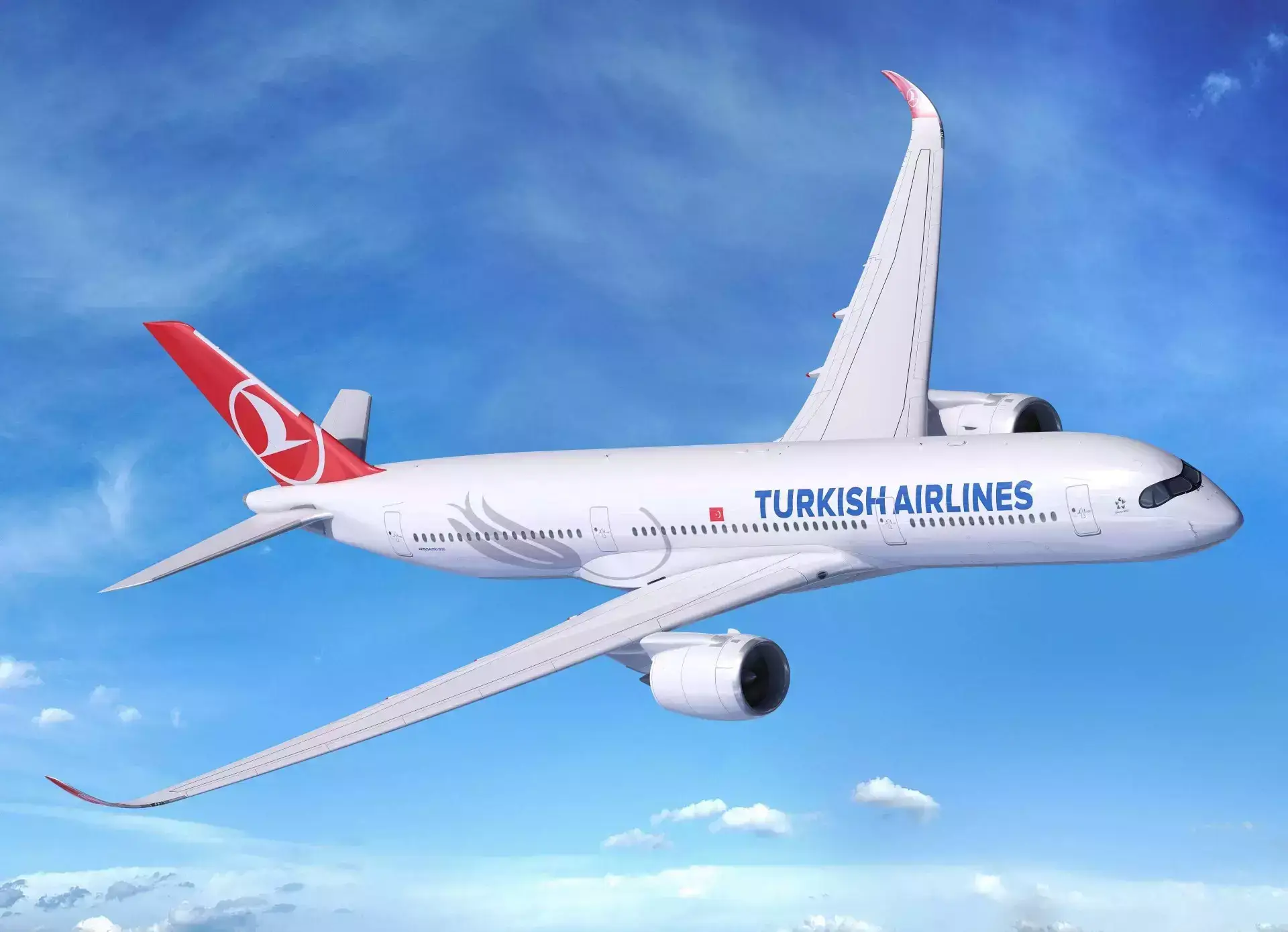 Turkish Airlines flights to Kabul resumed today (Tuesday) after nearly three years.
Turkish Airlines flights to Kabul resumed today (Tuesday) after nearly three years.
The airline is scheduled to operate four flights a week between Kabul and Istanbul.
Cenk Ünal, the ambassador of Türkiye to Kabul, said that the resumption of flights by this airline will enhance commercial relations and the tourism industry between the two countries.
“The international Turkish Airlines, which is resuming its flights to Kabul, not only strengthens the relations between the two countries but also develops commercial, tourism, and cultural relations,” Cenk Ünal said.
Mahmut Yayla, Turkish Airlines’ director of sales and marketing for the second region, said: “With great speed and a fleet of 454 modern aircraft, we connect 348 destinations in 130 countries across four continents, and through these flights, we also connect Kabul to the world.”
The last flight of Turkish Airlines to Afghanistan was on August 14, 2021.
Meanwhile, officials from the Ministry of Transport and Civil Aviation said that all facilities are currently in place, and other international airlines can also operate flights to Afghanistan.
Ghulam Jilani Wafa, senior advisor to the Ministry of Transport and Civil Aviation, said: “We will provide standard services to ensure better facilities for the people of the region and our own people.”
On the other hand, the Afghanistan Chamber of Commerce and Investment also said that along with the resumption of international airline flights, there is a need to facilitate visa issuance, especially for Türkiye.
Khanjan Alokozai, a board member of the ACCI, told TOLOnews: “We have more than fifteen thousand tons of pine nuts annually, and we hope that Turkish Airlines will sign a contract with us to regularly and systematically transport our goods.”
According to the Ministry of Transport and Civil Aviation, there are currently 27 active airports in the country, with international flights being conducted from five of them.
Kabul Hosts Major Intl Exhibition of Domestic Products
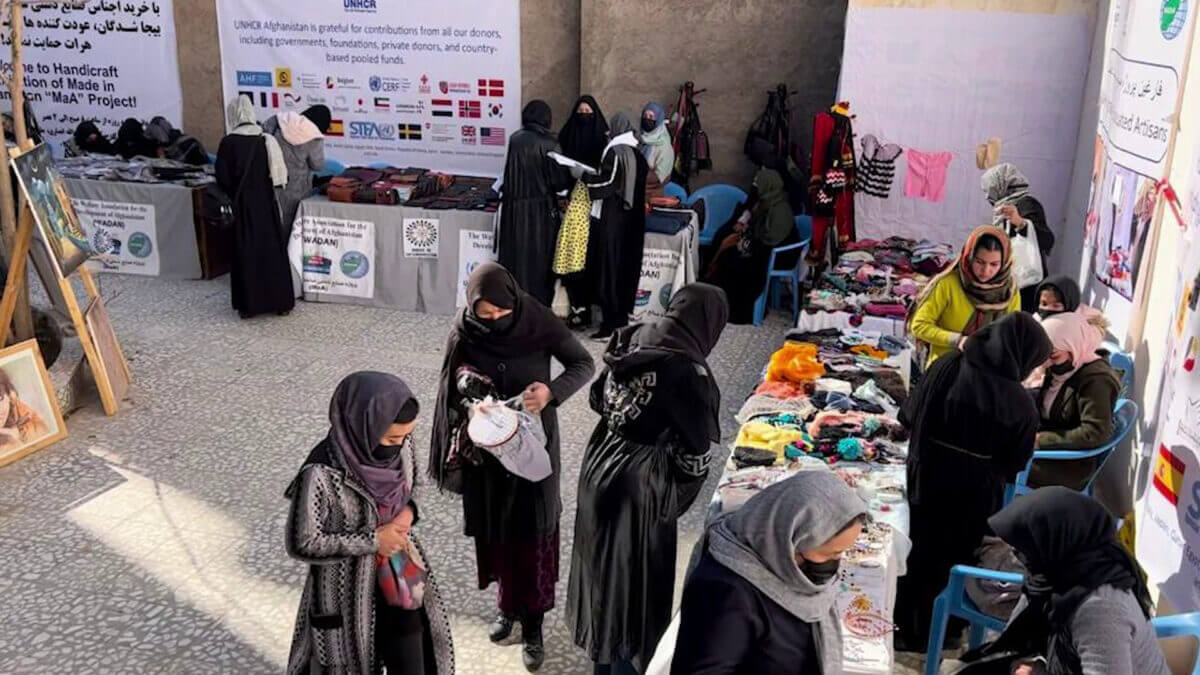 An international exhibition showcasing domestic products opened to mark Industry Week in the country.
An international exhibition showcasing domestic products opened to mark Industry Week in the country.
Abdul Salam Hanafi, the Deputy PM for Administrative Affairs, emphasized the industrialization of the country at the opening ceremony and assured that the Islamic Emirate is committed to supporting domestic productions.
“The role of industry in the gross national product is significant, and strengthening the industry for job creation in the country is also important,” Abdul Salam Hanafi said.
Nooruddin Azizi, the acting Minister of Industry and Commerce, said that the purpose of this exhibition is to introduce and market domestic products.
Nooruddin Azizi added that in addition to supporting the country’s industry, over the past year, more than 2,000 manufacturing companies have been granted distribution licenses or had their licenses renewed.
The acting Minister of Industry and Commerce said, “Day by day, our traders, industrialists, investors, our friends abroad who are afraid of how to bring their capital to Afghanistan, thank God, opportunities are being provided for them to invest in Afghanistan.”
Hedayatullah Badri, the acting Head of the Central Bank, also stated during the opening ceremony that more banking facilities have been provided to solve the challenges of businessmen.
“There has been an increase in money withdrawals from banks. Initially, when the change occurred, people were given $200 from their deposits,” Hedayatullah Badri said.
The Ministry of Economy at the exhibition states that stabilizing the Afghan currency, reducing inflation rates, increasing exports, attracting investments, endorsing the budget from domestic revenues, transparently collecting taxes, and supporting the industry are among the most important functions of the Islamic Emirate in the economic sector.
Abdul Latif Nazari, the deputy minister of the Economy, said, “Economic developments have caused our national currency to experience an unprecedented stability and an upward trend against foreign currencies and rates.”
The Chamber of Commerce and Investment said that attention to the industrial sector is impactful on the country’s economic growth and that land should also be distributed to factory owners and industrialists.
Mohammad Younus Momand, the First Deputy of the Chamber of Commerce and Investment, said, “Our request is that the minister and deputy pay attention to land distribution for factory owners and investors.”
The international exhibition of domestic products was held in Kabul to celebrate Industry Week, with participants displaying their products in 800 booths. Out of these, 200 booths were dedicated to women, and 15 Iranian companies also participated in the exhibition.
Afghan-Pakistan Trade Surpasses $800 Million in First Quarter of 2024
 The Ministry of Industry and Commerce reported that in the first four months of 2024, trade with Pakistan amounted to $802 million.
The Ministry of Industry and Commerce reported that in the first four months of 2024, trade with Pakistan amounted to $802 million.
Akhundzada Abdul Salam Jawad, the ministry’s spokesperson, noted that exports accounted for $254 million of this total.
The primary Afghan exports to Pakistan include fresh fruits, vegetables, coal, cotton, and carpets.
Akhundzada Abdul Salam Jawad told TOLOnews: “In the first four months of this year, trade between Afghanistan and Pakistan was about $802 million, with $254 million from exports and $548 million from imports.”
Simultaneously, Shahbaz Sharif, the Prime Minister of Pakistan, also announced at an economic conference that Islamabad is ready to discuss preferential trade agreements with Afghanistan and Azerbaijan. The Prime Minister of Pakistan did not provide details on the preferential trade.
Mahboobullah Mohammadi, an Afghan trader, told TOLOnews: “All plans should be designed according to operational guidelines and reactions to this agreement so that both countries will face all strategies in the future due to this agreement and all terms should be clearly outlined.”
Experts said that such agreements primarily serve economic and commercial purposes. These include developing the domestic market, attracting investments, fostering regional specialization, enhancing competition, and facilitating more substantial involvement in multilateral trade negotiations. Additionally, these agreements often pursue political and security objectives that can enhance regional political stability.
Abdul Nasir Rishtia, an economist, said: “Such agreements mainly strive to exchange specific goods and give preference to each other’s commercial goods, and politically, it is emphasized that they form an economic convergence.”
The Afghanistan-Pakistan Joint Chamber of Commerce also believes that signing trade agreements impacts the enhancement of trade relations with countries and emphasizes resolving the trade challenges of Afghanistan with regional countries, especially Pakistan, through dialogue.
Naqibullah Safi, the executive head of the Afghanistan-Pakistan Joint Chamber of Commerce, said: “It had been proposed that a preferential trade document be signed between the two countries, and based on that, tariffs for 10 to 15 items between us and Pakistan should be reduced to zero.”
Recently, the acting Minister of Industry and Commerce announced efforts to overcome the trade challenges with Pakistan, stating that they had reached an agreement for normal flow of vehicle traffic and trade with this country in the current solar year.
Indian PM: Chabahar Port Will Boost Trade With Afghanistan, Central Asia
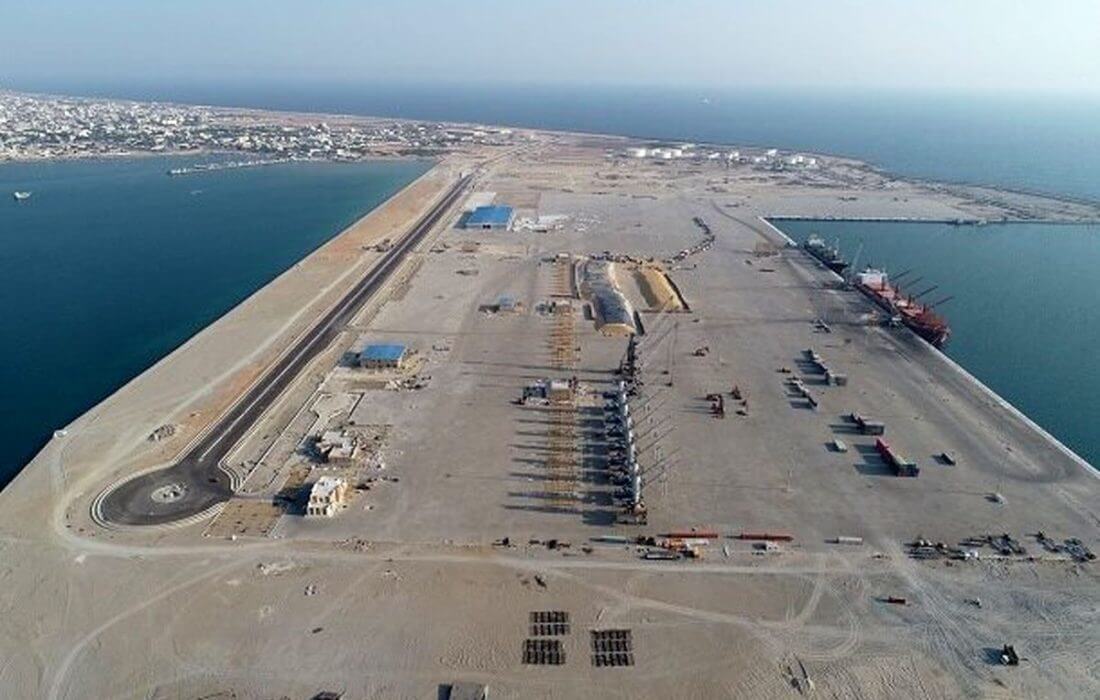 The India Prime Minister Narendra Modi emphasized India’s connection to Afghanistan and Central Asia through the Chabahar port.
The India Prime Minister Narendra Modi emphasized India’s connection to Afghanistan and Central Asia through the Chabahar port.
Indian media outlets reported that Narendra Modi has spoken about expanding trade exchanges between India and Central Asian countries and the implementation of a ten-year agreement to develop the Chabahar port.
The Indian Prime Minister added: “India will work for ensuring that our efforts promote regional connectivity, trade and commerce, including to and from the landlocked Afghanistan and the Central Asia region. This is also embedded in our vision to promote connectivity including through the International North South Transport Corridor, as also the India-Middle East -Europe Economic Corridor.”
Meanwhile, officials in the Islamic Emirate also consider the development of the Chabahar port beneficial for the countries in the region.
Zabihullah Mujahid, the spokesperson for the Islamic Emirate, said: “We are in favor of better economic relations with all countries, and the Chabahar port should be expanded. The more activity there is in Iran’s Chabahar port, the more economic stability in the region is strengthened, benefiting Afghanistan, and we support it.”
Akhundzada Abdul Salam Jawad, the spokesperson for the Ministry of Industry and Commerce, said: “Afghanistan-India trade in 2023 was worth $773 million, of which $579 million were exports and $200 million were imports.”
The Afghanistan Chamber of Industries and Mines also considered the development of the Chabahar port beneficial for trade and transit activities among the countries in the region, especially Afghanistan and India.
Sakhi Ahmad Payman, the first deputy of the Chamber of Industries and Mines, said: “If investment in the Chabahar port increases and develops, it gives Afghanistan the opportunity to both increase transit levels and revenue and to utilize an alternative route.”
Recently, the Ministry of Industry and Commerce announced the provision of land and the establishment of a special zone in Iran’s Chabahar port for the country’s traders, stating that this zone has facilitated export and import activities for Afghan traders.
US understands importance of Chabahar Port for humanitarian aid: India
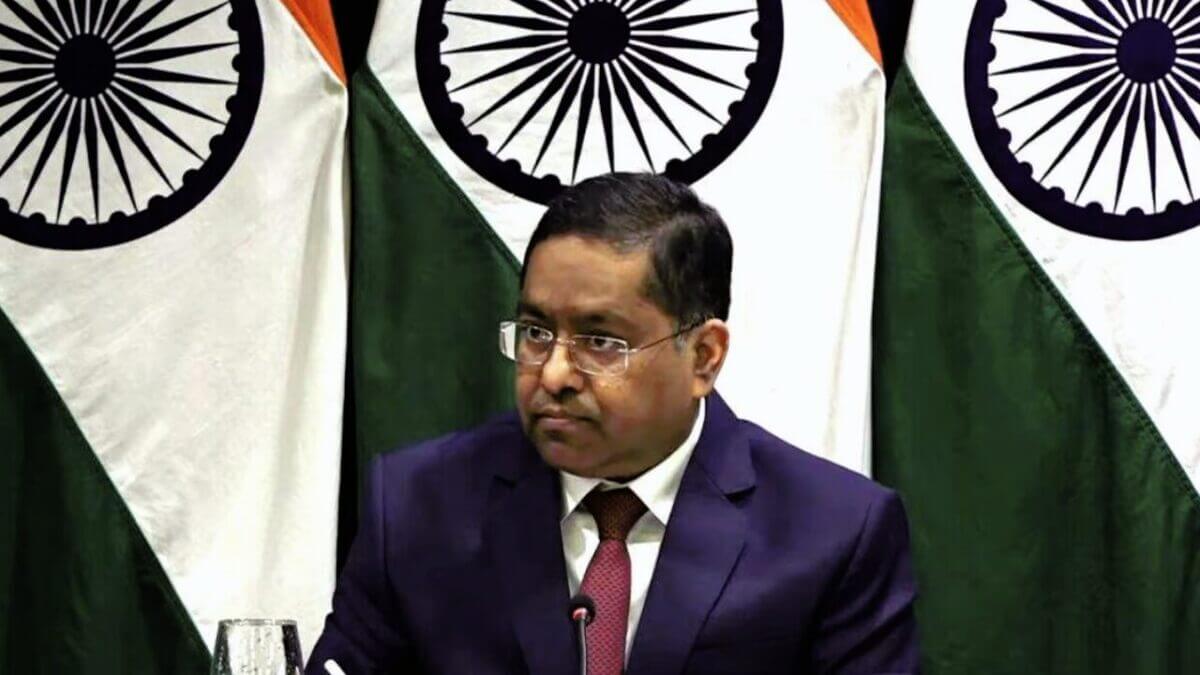 NEW DELHI — The U.S. recognizes the significance of Chabahar Port in facilitating humanitarian assistance to Afghanistan, according to Randhir Jaiswal, spokesperson for India’s Ministry of External Affairs.
NEW DELHI — The U.S. recognizes the significance of Chabahar Port in facilitating humanitarian assistance to Afghanistan, according to Randhir Jaiswal, spokesperson for India’s Ministry of External Affairs.
Speaking at a weekly press conference, Jaiswal emphasized that the port has enabled India to provide substantial humanitarian aid to Afghanistan since 2018.
“The United States also understands the importance of Chabahar Port, our continued humanitarian supplies to Afghanistan, and the need to provide Afghanistan with economic alternatives,” Jaiswal said.
Jaiswal noted that Indian External Affairs Minister S. Jaishankar has recently discussed the matter in several forums. “He [Jaishankar] said we should not take a narrow view of this project. It plays an important role in regional connectivity, especially for the landlocked countries in the area,” Jaiswal quoted.
Since 2018, India has sent over 85,000 metric tons of wheat, 200 metric tons of pulses, and 40,000 liters of the pesticide malathion to Afghanistan through Chabahar Port, Jaiswal added.
Referring to meetings between the Russian and Indian special envoys on Afghanistan, Jaiswal stated that the two sides discussed the situation on the ground and emphasized the continuation of humanitarian assistance to the country.
India’s embassy in Afghanistan is not fully operational; however, a technical team remains active in the Kabul embassy.
Russia shows interest in importing Afghanistan’s agricultural products
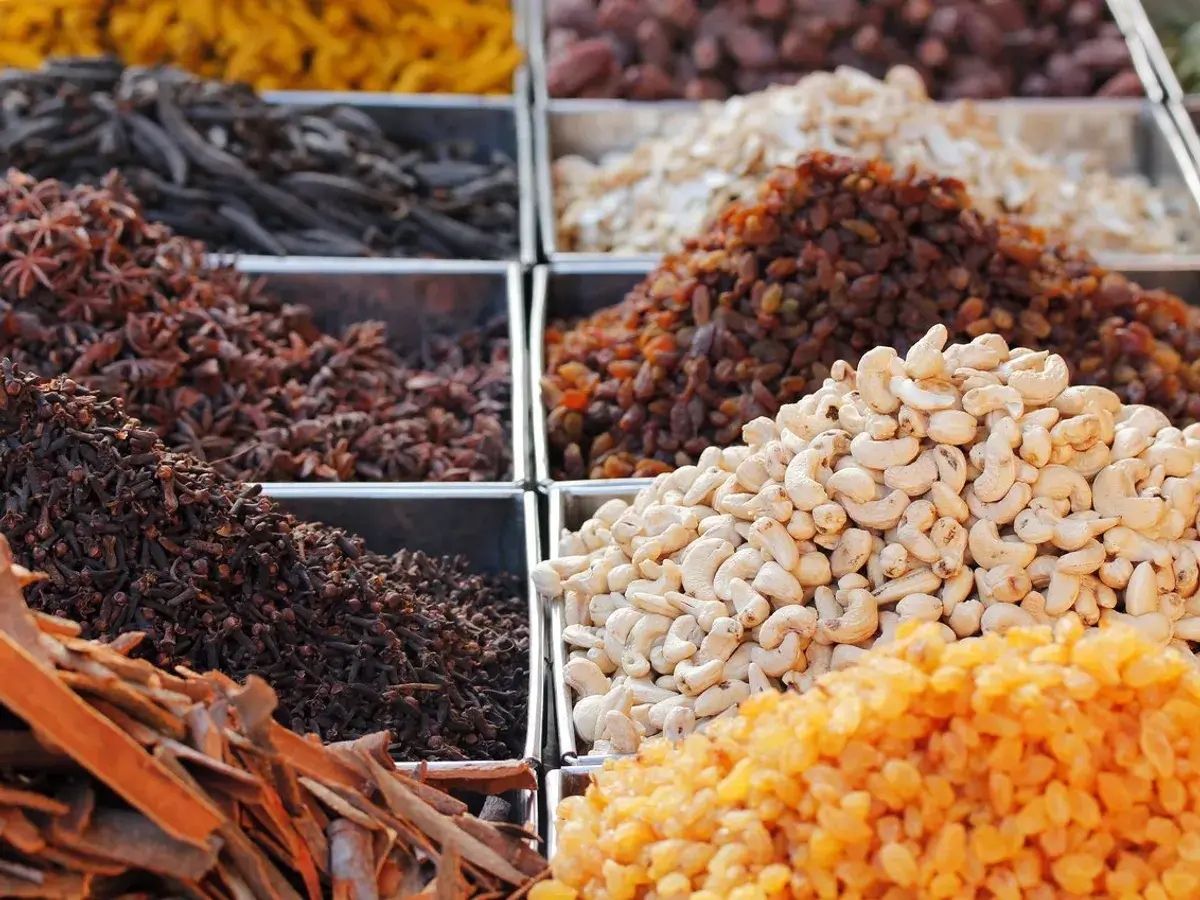 Alexey Overchuk, Deputy Prime Minister of Russia, has announced that Moscow is interested in importing agricultural products from Afghanistan into its markets.
Alexey Overchuk, Deputy Prime Minister of Russia, has announced that Moscow is interested in importing agricultural products from Afghanistan into its markets.
TASS news agency reported that the Russian Prime Minister made these remarks on Friday, May 17, during the sidelines of the “Kazan” meeting.
He called for increased exports from Afghanistan to Russia and mentioned the development of relations between the two countries in the areas of transportation and supply.
According to the Russian Prime Minister, exports of grapes and dried fruits to Russia began last year, and Moscow’s markets are interested in Afghanistan’s products.
The 15th International Economic Forum of Russia and the Islamic World is scheduled to be held today, Sunday, May 19, in the city of Kazan, Tatarstan.
Meanwhile, the Ministry of Industry and Commerce of Afghanistan announced that in the Russia-Islamic World meeting, discussions were held about Afghanistan and Russia’s economic capacities, exports and imports between the two countries, investment in Afghanistan’s mining sector, and increasing trade between Afghanistan and Russia.
According to reports, a high-ranking delegation from the country has also traveled to the Republic of Tatarstan, Russia, to participate in the 15th International Economic Forum of Russia and the Islamic World.
It is worth noting that this forum is held to strengthen trade and economic relations, scientific and technical cooperation, and social and cultural ties between the regions of Russia and the member countries of the Organization of Islamic Cooperation and to promote the development of Islamic financial institutions.
Afghanistan Trade With Turkey Up 53% in 1402
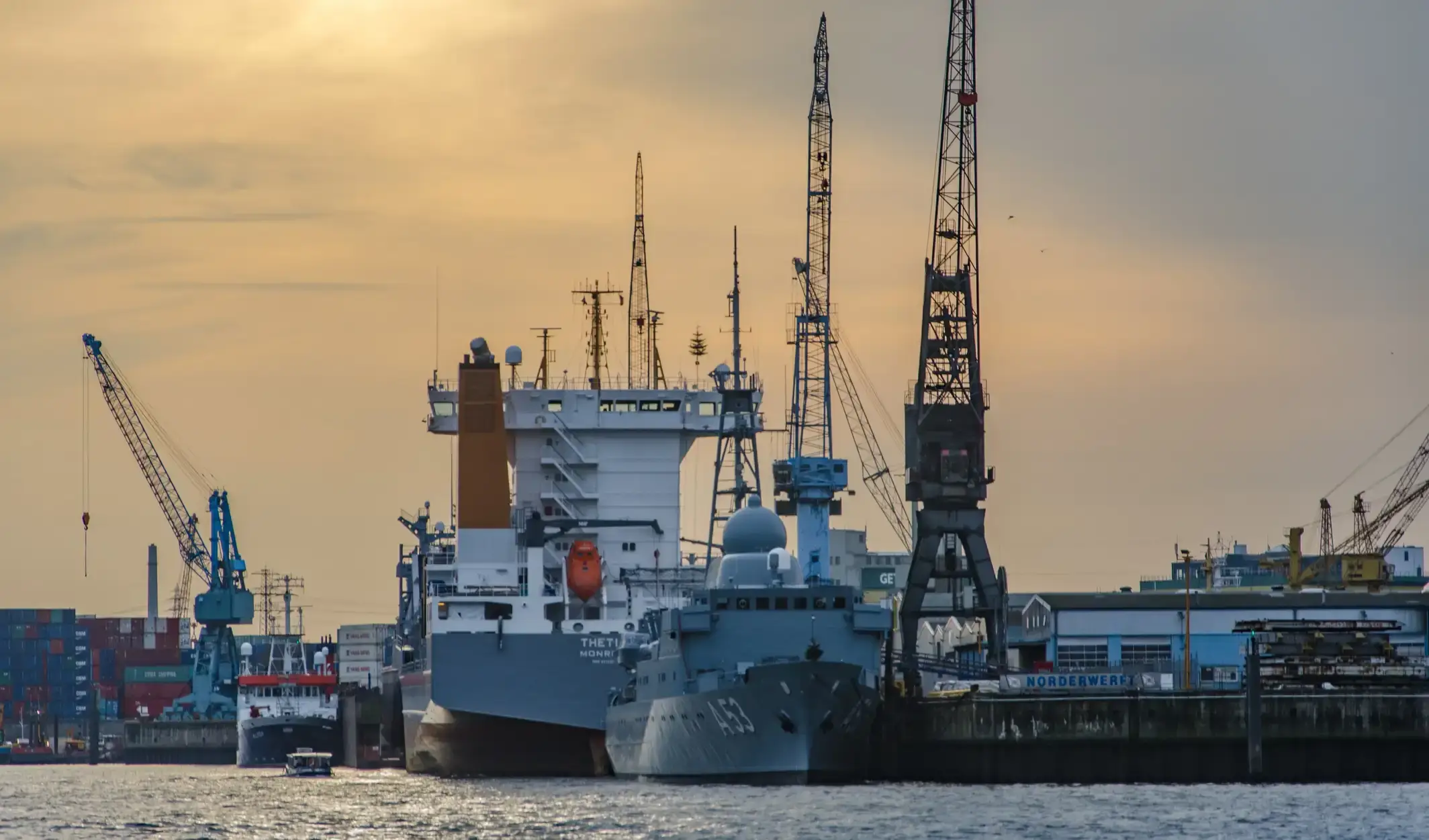 The Ministry of Industry and Commerce reports a fifty-three percent increase in trade with Turkey in 1402.
The Ministry of Industry and Commerce reports a fifty-three percent increase in trade with Turkey in 1402.
Based on information from this ministry, trade with Turkey last year was valued at over $100 million, of which $27 million consisted of exports.
Akhundzada Abdul Salam Jawad, the spokesperson for the Ministry of Industry and Commerce, stated: “During the year 1402, the trade volume was about $107 million, with exports accounting for $27 million and imports for $80 million, indicating a 53% increase compared to 1401.”
The Chamber of Industries and Mines also emphasized the need to focus on Turkey’s investments in Afghanistan alongside trade.
Sakhi Ahmad Payman, the first deputy of the Chamber of Industries and Mines, said: “In the past one and a half years, Turkish investors have shown interest in investing in Afghanistan’s mining and energy sectors, which is a very good opportunity.”
Previously, a delegation led by Mullah Abdul Ghani Baradar, deputy prime minister for economic affairs, traveled to Turkey to discuss expanding trade and economic relations with Turkish officials.
Exhibition opens in Kabul during industrial week
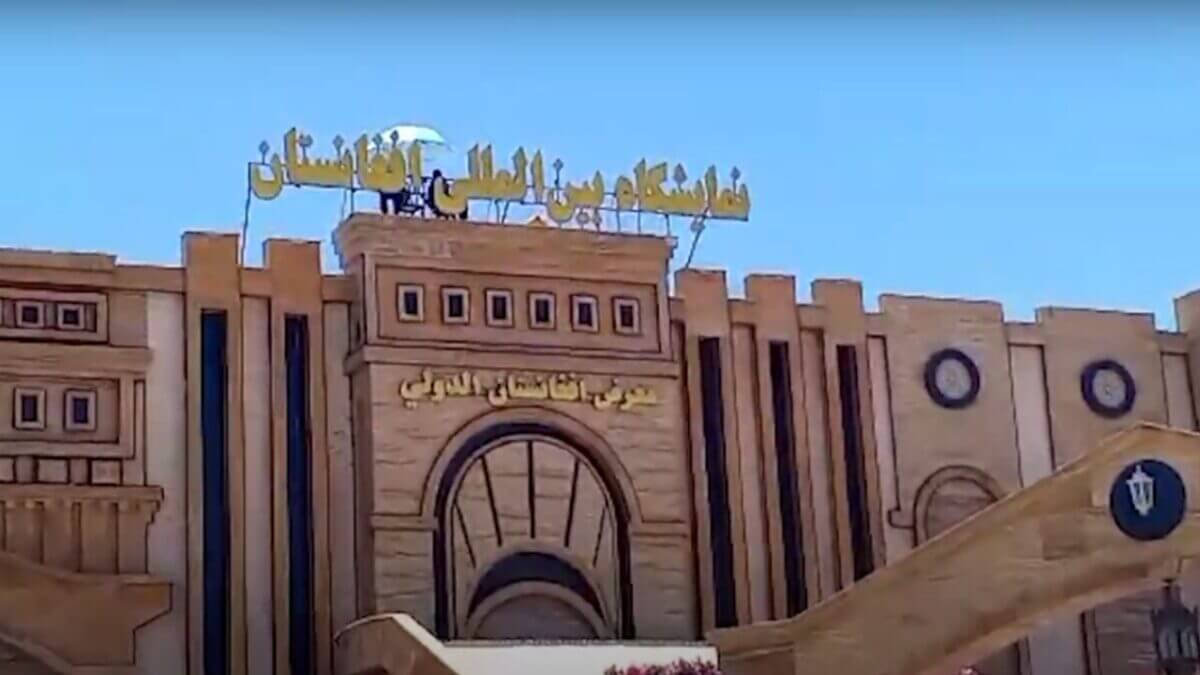 Taliban-run Ministry of Industry and Commerce announced that entrepreneurs and traders have showcased their products in 800 stalls at an exhibition marking Industrial Week in Kabul.
Taliban-run Ministry of Industry and Commerce announced that entrepreneurs and traders have showcased their products in 800 stalls at an exhibition marking Industrial Week in Kabul.
At the opening ceremony, Abdul Salam Hanafi, Taliban’s deputy chief minister, described industrial growth as crucial to the country’s economy. The exhibition has also seen participation from female entrepreneurs.
An official from the Chamber of Industries and Mines of Afghanistan criticized the lack of facilities in distributing land to industrial owners for investment. Entrepreneurs and industrial owners from various provinces displayed their products in the food, construction, and healthcare sectors for marketing purposes.
During the event, Shirbaz Kaminzada, head of Afghanistan’s Chamber of Industries and Mines, highlighted the absence of land allocation as a serious challenge to the industry, noting that this issue has not received sufficient attention. “What can we do with money? We are forced to transfer it to other countries and invest there. You know that in our neighboring countries, land is free for investors. It’s true that land is not given for free for residential purposes, but for factories, land is free all over the world because a factory is a national asset,” he said.
Iranian entrepreneurs also participated, displaying their products in 15 stalls.
The Taliban Ministry of Industry and Commerce emphasized the need for more investment in Afghanistan. The National and International Industrial Week Exhibition, featuring female entrepreneurs from various provinces, will be open to the public for seven days.
Recent Afghanistan Economic Outlook
Join to our Newsletter
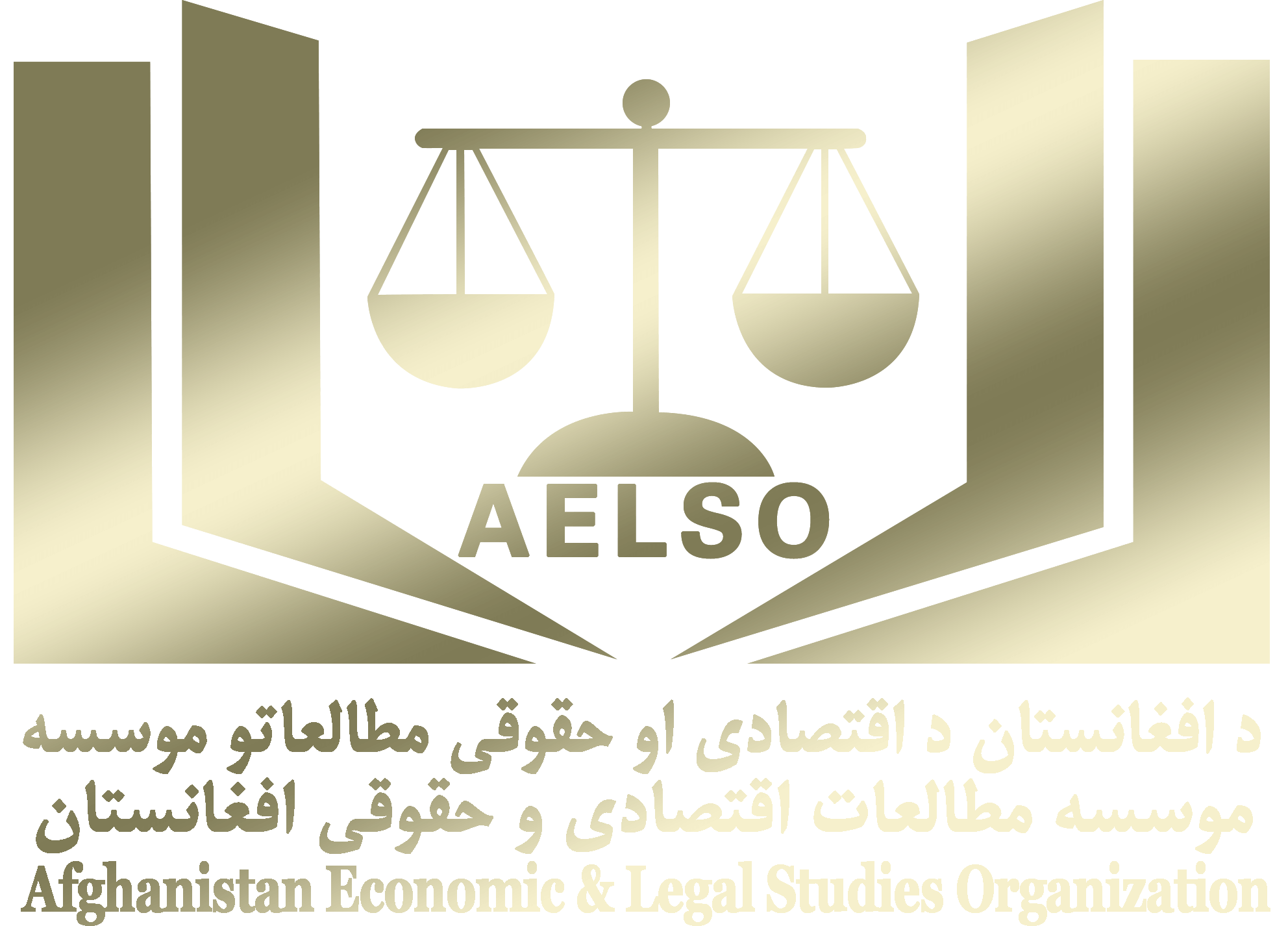
Advancing the Ideas for a Peaceful and Prosperous Afghanistan
© 2024 Copyright Afghanistan Economic & Legal Studies Organization.